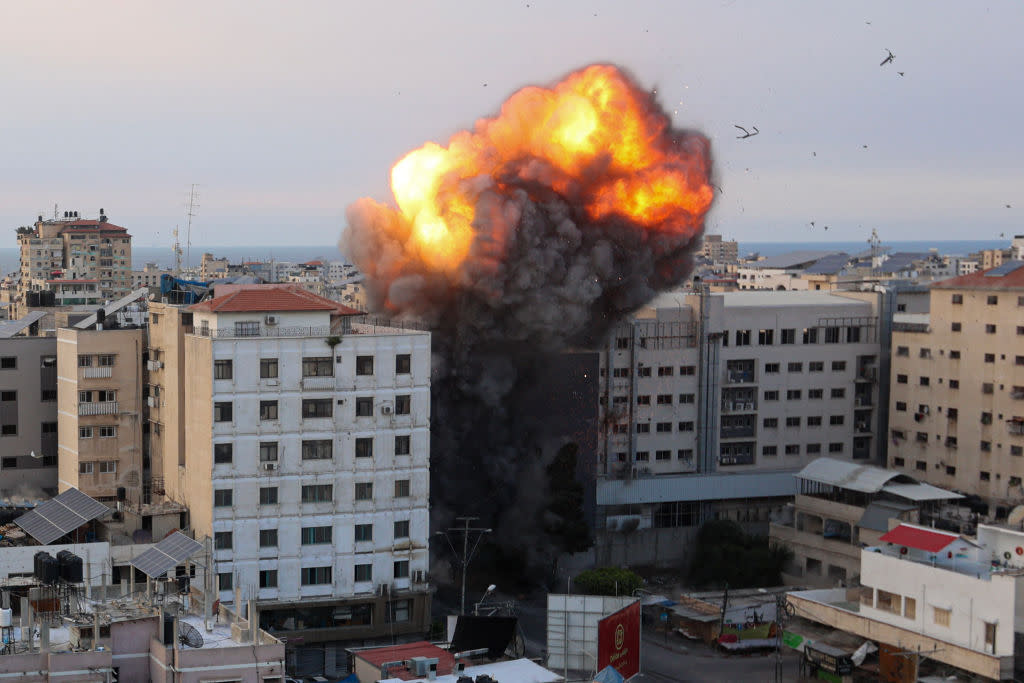How the Israel-Hamas war could derail peace with Saudi Arabia

Israel and the Palestinian terrorist organization Hamas are officially at war after the latter launched a surprise attack on the Jewish state last weekend. Hundreds of people have been killed on both sides of the conflict; Hamas insurgents have kidnapped dozens of Israelis and brought them back to the Palestinian-controlled Gaza Strip; and Israel has begun a massive counteroffensive in response.
But while the fighting may be contained to Israel and Gaza, the war could have wide-ranging geopolitical consequences for the entire Middle East region. In fact, the war appears to have stalled talks for a historic peace deal between Israel and Saudi Arabia. Less than three weeks ago, it seemed that the U.S.-brokered pact, which would've officially established diplomatic ties and acknowledgment between the Saudis and Israel, was nearly a done deal. Israeli Prime Minister Benjamin Netanyahu told CNN that normalization between Israel and the Saudis would be a "quantum leap" for the region.
However, given the scale of the war that has since broken out, has Hamas completely totaled the Israeli-Saudi plans for peace? Or is there still a chance that a normal relationship between the two countries could be hashed out?
There are 'two paths' in the Middle East
A potential deal between Israel and Saudi Arabia would "change the prospects of the entire region far into the future," U.S. Secretary of State Antony Blinken told CBS News' "Face the Nation." However, he suggested that Hamas and Iran — which has admitted to giving Palestinians material support — were against any type of peace offering.
"There are really two paths before the region," Blinken said. "There's the path of greater integration, greater stability, including, critically, [that] Israelis and Palestinians resolve their differences. Or there's the path of terror."
However, the Biden administration (as well as the Trump administration before it) has been helming Israeli-Arab relations largely without the involvement of Palestinians. This was the "crux of the problem, and one reason the United States and Israel were blindsided by the Hamas attack," The New York Times reported. In the midst of a widespread effort to enable diplomacy between Israel and Saudi Arabia, there was "bipartisan agreement, shared by most of the U.S. foreign policy establishment, that the question of Palestine no longer matters in the Middle East," Nader Hashemi, a professor of Middle East politics at Georgetown University, told the Times.
As a result, growing tensions in the region were largely ignored until they boiled over into war, and the deal between Israel and the Saudis "is for now off the table," Ian Bremmer, founder of geopolitical consulting firm Eurasia Group, told Fortune. And given that Saudi Arabia is a key Arab state, "if Israel's retaliation leads to many tens of thousands of Palestinian deaths, then Saudi [Arabia] will have a hard time justifying a peace with Israel," Bernard Haykel, a professor of Near Eastern studies at Princeton University, told the outlet.
The deal wouldn't have made the region more peaceful
Even if the deal were to still be on the table, it just "reinforces the terms of the repressive U.S.-backed status quo," Spencer Ackerman wrote for The Nation, describing the quest for normalization as a "deal signed in blood." Given that the deal was brokered without input from the Palestinians, the opening of Israeli-Saudi relations "risks more periods of bloodshed like the one that began on Saturday." And while there is no question that the details of the pact would be "historic," Ackerman opined, "the idea of Saudi Arabia being a bulwark against Israeli violence is not a credible one."
Regarding the geopolitical state of the Middle East, the ongoing violence "makes it harder to sweep those complicated issues under the rug," Brian Katulis, vice president of policy at the Middle East Institute in Washington, D.C., told The Times of Israel. What's more, added Saudi expert Aziz Alghashian, was that Saudi Arabia wanted to "dispel any notion that the kingdom would prioritize normalization at the expense of supporting the Palestinians."
Since the clash between Israel and Hamas is unlikely to dissipate anytime soon, the result will be a "cooling of the relationship between Israel and the Emirates and probably a delay, at least, of any sort of deal between Israel and Saudi Arabia,” Joost Hiltermann, Middle East director of the International Crisis Group, told the Times of Israel. The conflict may have given Saudi Arabia even more of a reason to pour cold water on the pact, considering a Times-cited survey that "showed just 2% of Saudis backed normalizing ties with Israel."

